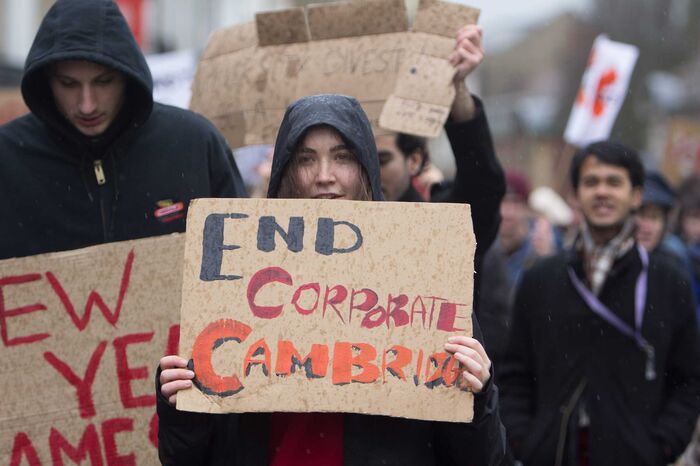Extinction Rebellion’s arrest-based action excludes the very groups most affected by climate change
From working to maximise arrests to pushing their image as “good” protestors, Extinction Rebellion must adapt its actions which put marginalised groups at risk

Over the last week I and many others have been confronted with one recurring question: why are we not attending the Extinction Rebellion protests in London? Exhausted by the constant need to explain myself and my absence from these protests, I thought it might be helpful to gather some of my thoughts on Extinction Rebellion (hereafter XR) in one place.
My chief criticism of this organisation should be fairly easy to grasp: XR is inherently exclusionary. Its direct actions – as described by founding member Roger Hallam – are specifically designed in order to engineer as many arrests as possible. This marginalises the voices of minority groups most vulnerable to arrest and to police violence (including, but not limited to working class communities and people of colour). These are the very groups worst impacted by climate change and environmental degradation, and so excluding their voices from actions against this crisis is hardly conducive to an effective or sustainable movement. If such groups are to be included in XR, this is inevitably in a “supporting role”, thus reproducing pernicious racial and class divides within a movement which should be set on demolishing these. Members of XR frequently attempt to bypass these criticisms by claiming that they are “using their privilege” on behalf of others. This is something which I find both paternalistic and patronising: I desire my own voice within the environmental movement. I do not want to be spoken for.
In addition to the above, it should be noted that XR have been known to collude with police in an effort to maximise arrests. While seeking to generate public sympathy for protestors suffering police repression, the movement’s leadership appears to be complicit in and actively aiming for this repression. This is self-evidently contradictory and hypocritical. More importantly, however, it risks undermining public support for protests in real cases of repressive state action.
“I desire my own voice within the environmental movement. I do not want to be spoken for”
This dangerous tendency is further encouraged by XR’s representation of their – majority white, middle-class – actions as prime examples of “good” protests (aided by the media and police, who have described protestors as “nice”, “passive”, and essentially non-confrontational). “Good” being a relative quality, this narrative only makes sense if constructed in opposition to an imagined image of “bad” protest. Given the Met’s history of violence directed against people of colour and working class communities, all too often justified by (false) claims regarding the victim’s supposed aggression, it is easy to see which demographics might be chosen to represent the negative “Other” in this binary. Such narratives legitimise the targeting of vulnerable communities. Serious discussion needs to be held on the issue of XR’s potential complicity.
As if the above was not enough, leading figures such as Hallam have been known to compare Rebels’ arrests to those of the US civil rights movement – during which real, racialised police violence destroyed thousands of lives. These comparisons are inappropriate and trivialising. They serve merely to make the group’s tactics even more alienating and insulting.
When talking to XR members about these issues, I tend to receive two responses. The first is the claim that they have not witnessed any examples of exclusionary behaviour in XR circles. This hardly stands up to scrutiny. If the person in question bears considerable racial and social privilege, then it stands to reason that they will not personally have encountered such attitudes. Besides this, as I hope to have made clear, what we are talking about is not exclusionary actions taken by individuals – the problem lies within a wider institutional structure which works to marginalise particular voices.
“If marginalised groups are to be included in XR, this is inevitably in a supporting role”
Secondly, XR members will tell me that I should criticise the movement from the inside. This comes from a real place of arrogance. XR is not the world’s only environmental organisation, and the assumption that a refusal to participate in their actions amounts to a rejection of environmental politics is frankly insulting. This response also betrays a wilful ignorance of the terms on which I am arguing. My key point is that I – and many others – do not see joining this movement as a realistic possibility. The burden should not be on us to enter spaces within which we are deeply uncomfortable in order to reform them. Instead, we hope that those currently within those spaces might recognise that they have a problem with alienation, and work to change that – opening spaces in order to encourage diversity, rather than blaming minority groups for refusing to engage with closed spaces.
It is important to note that such criticisms and demands have long been directed towards this organisation without yielding results. In such a context, it may be time for XR members to consider whether there might be institutional barriers preventing these messages effecting real change within the group. A critical discussion regarding the movement’s leadership, internal hierarchies, decision making structures and centralisation, and the extent to which they might be inimical to substantive and positive change, is long overdue.
In a final disclaimer, I should make it clear that I have a huge amount of respect for many friends involved in this organisation, and I do not hold all members responsible for the decisions of all others. Movements of this size necessarily encompass a range of perspectives, and generate diverse experiences. Furthermore, it is my sincere hope that the following issues can be resolved, and the movement sustain itself, continue to grow and develop its politics. However, this needs to be done with considerable urgency, and there are significant barriers in the way of such progress at present.
 News / Cambridge academics stand out in King’s 2026 Honours List2 January 2026
News / Cambridge academics stand out in King’s 2026 Honours List2 January 2026 Comment / Plastic pubs: the problem with Cambridge alehouses 5 January 2026
Comment / Plastic pubs: the problem with Cambridge alehouses 5 January 2026 News / Cambridge businesses concerned infrastructure delays will hurt growth5 January 2026
News / Cambridge businesses concerned infrastructure delays will hurt growth5 January 2026 News / AstraZeneca sues for £32 million over faulty construction at Cambridge Campus31 December 2025
News / AstraZeneca sues for £32 million over faulty construction at Cambridge Campus31 December 2025 Interviews / You don’t need to peak at Cambridge, says Robin Harding31 December 2025
Interviews / You don’t need to peak at Cambridge, says Robin Harding31 December 2025









